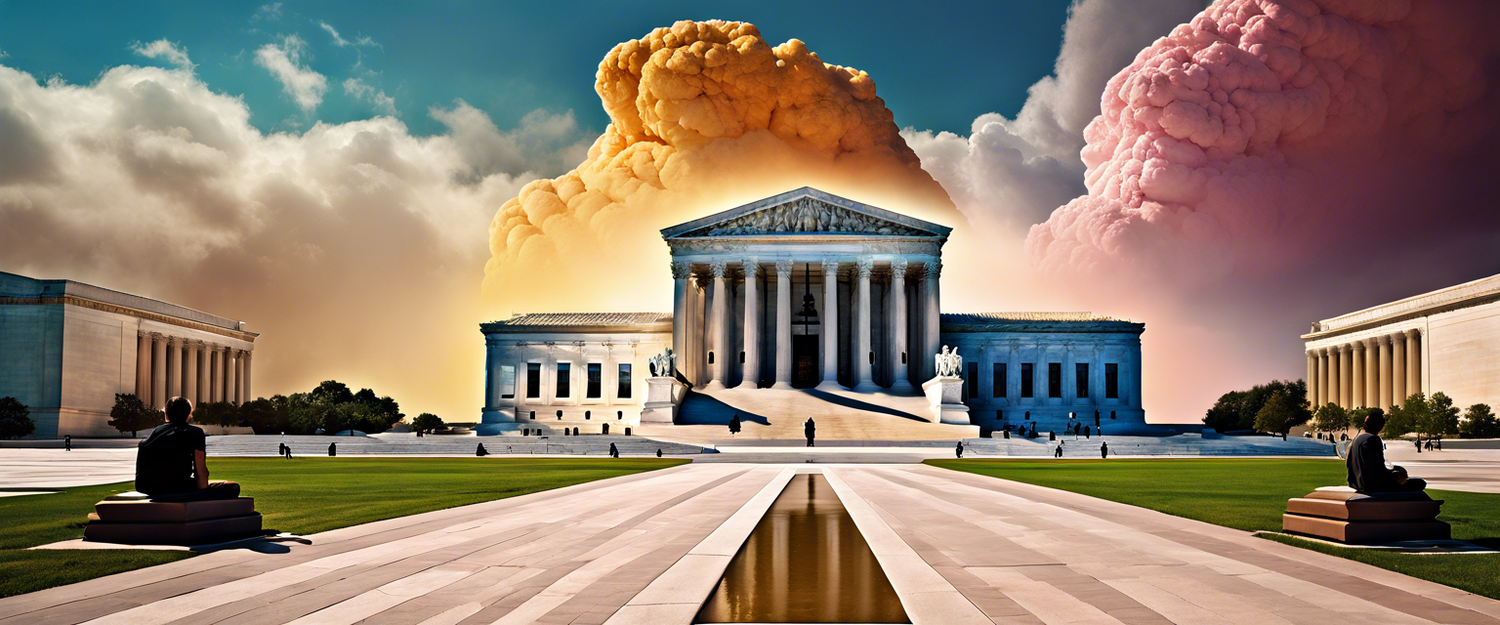Supreme Court's Role in Climate Change Regulations
The U.S. Supreme Court is poised to halt action on crucial climate change policies as it considers whether to pause new pollution regulations for coal-fired power plants. The Environmental Protection Agency (EPA) recently finalized rules aimed at significantly reducing greenhouse gas emissions from these plants, which are among the most significant contributors to climate change.
Background on the EPA's Emission Rules
This year, the Biden administration set in motion regulations requiring coal power plants that plan to operate for at least 15 more years to cut their greenhouse gas emissions by 90%. This initiative is vital for the United States to meet its climate commitments under the Paris Agreement.
Legal Challenges from Red States and Industry Groups
However, the newly established rules have faced strong opposition from red states and industry groups, resulting in a petition to the Supreme Court (SCOTUS) to stall their implementation. This legal challenge has been submitted to the Supreme Court's "shadow docket," allowing the justices to issue a stay on the rules swiftly and with little deliberation.
Concerns About the Major Questions Doctrine
The Supreme Court's decision in West Virginia v. Environmental Protection Agency (2022) has significantly restricted the regulatory capacity of the EPA regarding major national issues. This ruling clarified that federal agencies need explicit congressional approval for major regulatory changes, thereby limiting the EPA's ability to enforce its climate change policies effectively.
The Viability of Carbon Capture and Storage (CCS)
The Biden administration's emissions rules rely heavily on Carbon Capture and Storage (CCS) technology, aiming to capture up to 90% of carbon dioxide emissions from coal plants. While CCS has been promoted as a solution for continuing fossil fuel reliance, concerns over its safety, viability, and cost effectiveness remain prevalent.
Industry Arguments Against CCS Capacity
Opponents of the EPA's rules, including various trade groups and states like West Virginia and Ohio, argue that the technology for capturing such substantial CO2 emissions is not yet ready for practical application. They claim that there aren't sufficient infrastructures, such as pipelines, to transport the captured gas effectively.
The Biden Administration's Defense
Despite these challenges, the Biden administration robustly defends the EPA's rules, asserting that the agency has adequately vetted the relevant technologies and established realistic goals. Furthermore, they argue that the deadlines for complying with these new standards won't take effect until 2030 or later, diminishing the argument of "irreparable harm" from the lack of a stay.
Implications of the Supreme Court's Decision
The Supreme Court’s decision regarding the stay could dictate the future of these regulations and, consequently, the broader climate policies in the U.S. Furthermore, the decision could have lasting impacts on the EPA's authority to enact similar regulations in the future.
A Look Ahead at Future Regulations
Following the potential stay, new regulations from the EPA for existing gas-fired plants could also be influenced. These rules are expected to be rolled out after the upcoming elections, an event that could change the regulatory landscape significantly depending on the political outcomes.
Conclusion: The Future of Climate Change Regulations
The ongoing legal battles surrounding climate change regulations underscore the dynamic interplay between environmental policy, judicial interpretation, and political agendas. With the Supreme Court's recent trend toward limiting federal agency powers, the future of the EPA’s capability to regulate emissions remains uncertain.
Call to Action
As the Supreme Court deliberates on this pressing issue, citizens must stay informed and active in advocating for effective climate policies that prioritize the health of our planet and future generations. How important do you think it is for the Supreme Court to uphold environmental regulations?



发表评论
所有评论在发布前都会经过审核。
此站点受 hCaptcha 保护,并且 hCaptcha 隐私政策和服务条款适用。